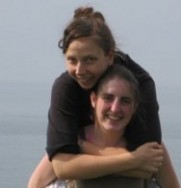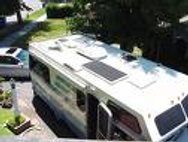
How UK govt could help off-grid communities
Its time to stop looking at the thousands of people who live in off-grid communities as strange throwbacks. They are the future, not the past.
(If you have come here from the BBC Radio 4 show looking for offgrid.com – you are in the right place, by the way. If you have not you may wish to listen to it at this link)
There are many reasons why people choose to live off-grid – and although it is not for everyone, there are tens of thousands in the UK alone who are desperate to get away from consumerism, traffic, jams, rapacious landlords, and working just to pay the rent.
Then there are people who want to reduce their carbon footprint – the damage they cause every day to the planet. now we are being told we all have to reduce our carbon footprint.
The UK’s former chief science adviser, Prof. Sir Ian Boyd said that technology alone will not allow us to avoid the pain of carbon reduction. The main thing we must do is “reduce demand” for energy, fuel, food, clothing, and everything else. Over the past 6 years since carbon targets were set, said Sir Ian, the government failed to offer incentives to assist the public in making those changes. It can use the tax system do so in the future. Carbon tax is a stick. Successful policy will also need a carrot.
That provides an opening for an environmental policy that offers, at least to some, an immediate change in their daily lives. For all who yearn for a more “natural” way of life.
For about the same price as the Thomas Cook airlift, the UK Govt could immediately enable several dozen experimental off-grid communities – eco-villages of 300 homes, which can grow to be small towns over time. This could satisfy the pent=up demand of hundreds of thousands of voters and simultaneously advance other key policies in the areas of energy, housing, and rural affairs.
At a time when housing in this country is facing multiple crises – of affordability and of supply and, in the case of social housing, of funding and of allocation – we need to be willing to embrace brave and new solutions. Off-grid settlements – historically a fringe interest in the UK, although they have a long history in other countries, including the US – offer an important new alternative.
They help solve four problems:
• Cheap housing – how to enable it
• Energy use – how to reduce it
• Food Security – how to improve it
• Rural Regeneration – how to kickstart it
A policy which offered £50-100 million over 3 years toward launching dozens of these communities would test to destruction the level of genuine demand for such a lifestyle among our army of rebellious eco-warriors, as well as many other groups who for reasons of …





